SUMMARY
This is AI generated summarization, which may have errors. For context, always refer to the full article.
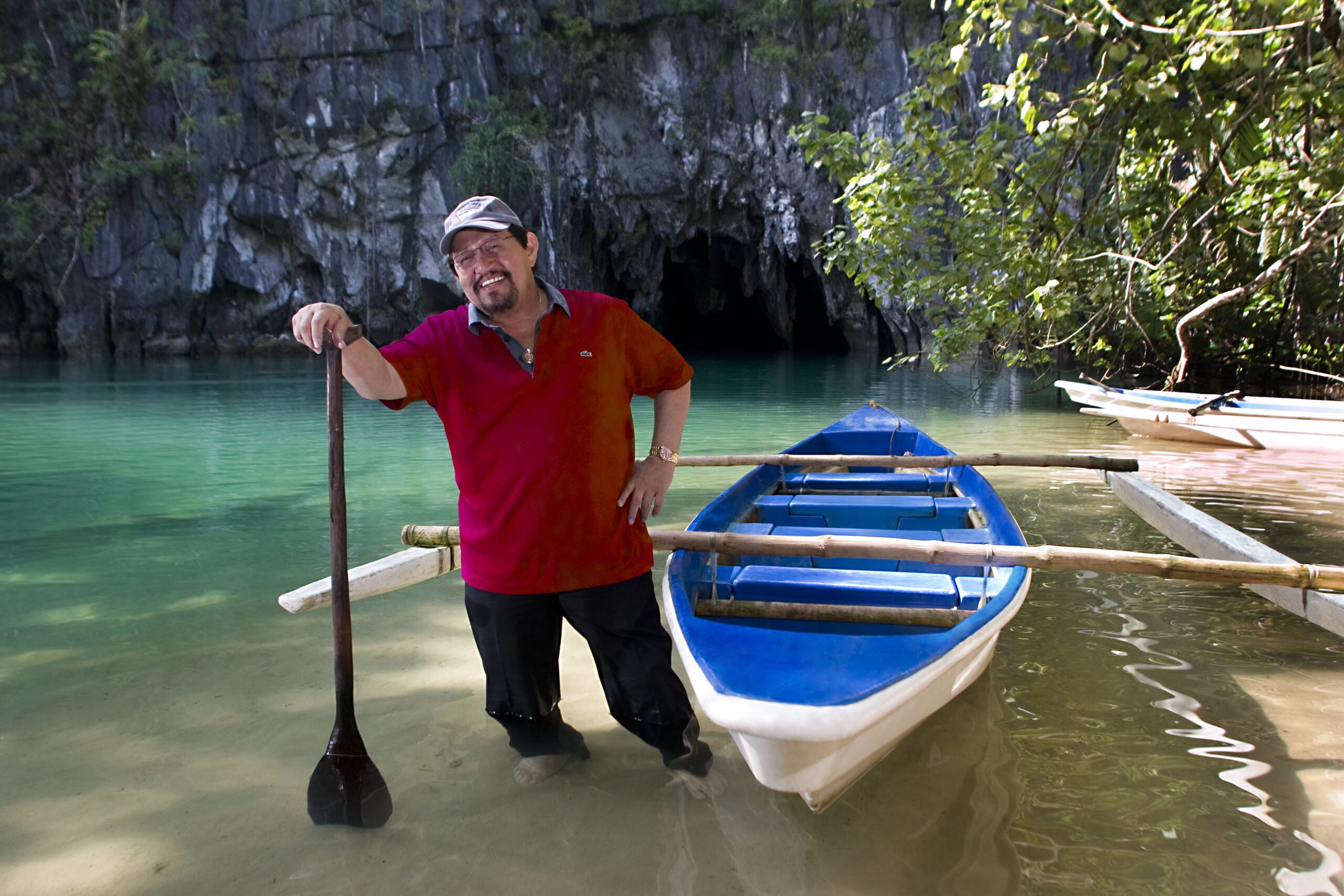
Edward Hagedorn introduced me to people as his goddaughter. I called him “Ninong” (Godfather) – or, as he preferred, “Nongni.”
This is how it started.
Almost three decades ago, my assignment at my newspaper was to look for “ordinary people with extraordinary stories.” A common friend said the mayor of Puerto Princesa, who was then fresh from his first reelection, wouldn’t disappoint.
Because the friend who brought me to him was somebody he knew and trusted way before he rose to popularity as the “mayor of Palawan,” Hagedorn treated me like an adopted girl tagging along for two weeks, just watching him. He was told to take care of me; I was told, “Ninong mo ’yan (He’s got you).”
During those two weeks, I found that it was not an exaggeration to say that Hagedorn’s story was one for the movies. I listened to people who knew him from his youth, the staff who were trying to keep up with his morning-to-dawn (yes, the following day) energy, and the constituents who were both grateful and proud that he served and mobilized them as he transformed the city.
I had little clue that, writing his profile then (published, serendipitously, on his 49th birthday on October 12, 1995), I was getting a preview of what moviegoers would be seeing in his biopic that Da King of Philippine movies, Fernando Poe Jr., would release the following year: HAGEDORN.
Life story made for the movies
He was a middle-class kid who grew up in the streets in Parañaque, got into gangs that got into troubles, played with a band, and dropped out of college. He worked, like his brothers, in the family’s logging business in Palawan. He eloped with his girlfriend (“Ninang mo [Your godmother],” he’d later say) at a young age and had to take odd jobs to raise his family. At one point, he financed a numbers game popular among the poor. But always, always, he didn’t think twice about giving even the shirt on his back if another person’s life depended on it. Sometimes he put his life on the line defending a downtrodden soul if he witnessed an oppression.
When the 1992 election season came, the bishop told him that Puerto Princesans were clamoring for a new leader. They felt that the incumbent, in power for 27 years, had not truly served them. Hagedorn thought he was being asked to organize for a candidate, and he was ready to help. No, the prelate told him, you are the candidate. But – you have to stop jueteng, and you have to stop cutting down the trees.
What would you expect a man with a kind heart, who thought he was a nobody, but was being told that he could make a difference, would do? He rallied the family to close the logging business, he turned off the flow of funds to the numbers game, and asked the residents: You want change? You have to help me do it.
This was the Puerto Princesa I saw over the 21 years Hagedorn was mayor: roads, two-story school buildings, strategically situated and fully-equipped satellite hospitals, a new city hall and coliseum, a sanitary landfill, housing for the poor, and important infrastructures were built. Strict environmental laws were enforced. At some point, the lowest crime rate in the country was achieved. A sustainable eco-tourism program was established. Puerto Princesa’s model for local governance was recognized nationally. The city’s environmental protection program was cited internationally.
That Christmas he ran out of ang-pau
But back to our “Anak” and “Nongni” story.
After the FPJ movie was shown, I didn’t see him again until about a couple of years later, when we bumped into each other at an event in Manila. I was by then a political reporter covering the local government sector, but it seemed he still saw me as the curious ward who tagged along as he moved around Puerto early in his term.
“Inaanak pa rin kita (You’re still my goddaughter),” he said.
The renewed friendship meant there was now considerable limits to what and how I could write about him, and he was okay with it. For somebody known to place media advertisements to boost Puerto Princesa’s initiatives and image, and for accommodating media requests for them to be sponsored in their travels to Puerto Princesa, he was instinctive in respecting the Chinese wall between us. I was grateful that he resolved on his own not to get me into possible conflict-of-interest situations.
I recalled that, after my first trip to Puerto, a close aide of his in Manila told me that “04” – his radio call sign – was known to have a very strong sixth sense when gauging a person’s sincerity. She said the mayor “sensed” that in me. I’d like to think he remembered that when he realized my new assignment was right smack in the bigger circle where he moved, and so he didn’t want to compromise me.
But that also meant we could have honest and deeper conversations about ethical choices, political dilemmas, challenges and limitations in governance, stories of disappointments and betrayals, joys of accomplishments and sweet victories, faith and redemption.
Okay, those are big words. A number of times these meant me asking him to help me understand why policy that sounded good on paper could not be truly responsive to the needs on the ground. Sometimes we talked about him wanting to use his personal money to get a city project started but state auditors were preventing him. There were times he would ask me to check what a consultant did wrong, or I would remind him not to be too kind to people who didn’t deliver. One Christmas season, he ran out of ang-pau for cash gifts to his constituents, so a friend and I had to rush to Divisoria and buy all the red envelopes we could lay our hands on before he went home to Puerto during the holidays.
Loyal to a fault
In January 2001, when Malacañang was besieged and ousted president Joseph Estrada was being whisked away through the backdoor – literally, they put him on a boat on Pasig River to bring him to his home in San Juan – people alerted me, “Ano’ng ginagawa ng Ninong mo sa Palasyo (What’s your godfather doing at the Palace)?”
The subtext was, why was he staking his reputation by being seen in the dying hours of a disgraced presidency?
“Anak, lugmok na ’yung tao (Child, he’s already down),” he told me. “The least I could do as a friend is to make him feel that not everyone has deserted him.”
Middle of that year, Nongni lost in the gubernatorial race, and analysts attributed it to his association with Erap. Voter awareness and grassroots organization aside, the story from the ground was, interest groups that were into environmentally extractive businesses funneled campaign funds to his rival. And I could understand why – can you imagine Hagedorn replicating across the entire Palawan what he did protecting the environment in Puerto Princesa?
He went after my bully
In 2005, I had investigated the unexplained wealth of a governor who was also openly known as a jueteng lord in Southern Tagalog. Word reached the newsroom that the official, during the flag ceremony at the capitol, threatened that journalists from Manila who attacked his person should watch their backs. A Newsbreak magazine board member confronted that governor when she bumped into him, and I think my editors sent word that they were not taking the threat lightly.
Then one editor said it wouldn’t harm if I told my Ninong about it. At the time, he was mayor of Puerto again and had been asked by president Gloria Arroyo to head the presidential anti-jueteng task force. I texted him, and he replied to reassure me: “’Wag mo pansinin ’yun, Anak. Ang taong madaldal, duwag.” (Don’t mind that, my child. People who make a lot of noise are cowards.) I left it at that.
Weeks later, my editor learned from her top sources in Camp Crame that Hagedorn summoned the right-hand man of the governor to warn him: “Sabihin mo sa amo mo, inaanak ko ’yung binabantaan niya. Kapag nasaktan ’yon, ako ang kalaban ’nyo, ako mismo ang pupunta sa inyo.” (Tell your boss, the reporter he’s threatening is my goddaughter. If she gets hurt, I’ll consider it an affront to me. I’ll personally run after you.)
I texted him: “Nongni, I heard! Did you really do that?” He replied. “Hehe.”
During his task force stint, there was also a point when there were security threats against him, and so whenever he was in Manila he and his staff had to use decoy cars. One time, after dinner, the security staff were discussing which car would bring me home. One of them said, “Kotse ni Boss,” referring to his known car. Nongni said, do you realize it will put her in harm’s way if somebody ambushed that car?
He was hurt when I didn’t ask for help
Twice, years apart, I realized I had hurt Nongni’s feelings. If you’ve heard of his reputation for being generous to a fault to every needy person who came to him, then it had something to do with that.
The first time was in 2010, when my child wanted to spend his birthday on the beaches of Puerto, and I deliberately booked the family’s flight, hotel, and tours without telling Nongni. I knew he would insist on paying our way, and I really didn’t want to burden him. I also wanted to surprise him by calling him when we were all set.
Instead of being surprised, he was visibly hurt. “Para namang wala kang Ninong sa Puerto,” he said. (It’s as if you didn’t have me here.)
To make up for it – he didn’t have to, really – he went to our small hotel early the following morning – before he did his campaign stops – to check if his “apos” (grandkids) were comfortable. He left a car, a driver, and an assistant to accompany us during our stay. He asked that I let him do at least that.
Imagine the panic in the hotel owner’s face when she saw the mayor dropping by unannounced – is there something wrong? “Inaanak ko ’yan, mga apo ko ’yan,” he said, explaining his preseence. (That’s my goddaughter, those are my grandchildren.)
The second time he got upset with me was when he called to consult on something, and learned that two of my children had just gotten out of the hospital. Why didn’t I tell him, he asked? I said, thank you, and that we were alright – there was PhilHealth and the company’s health insurance. I belatedly realized that to him it felt like I was saying, no, we don’t need you po.
“’Yung ibang tao natutulungan kong magpagamot, ang mga apo ko pa?” (I help other people get medical attention. Why did you not let me do the same for my grandchildren?)
The Comeback Kid
When he reached his term limit a second time in 2013, Nongni faced a string of electoral defeats: senatorial in 2013, mayoral recall in 2015, regular mayoral polls in 2016. Between those elections, I saw some of his national allies leave him on his own after saying they’d take care of his campaign. I learned of a trusted aide who stole from his Mac the files, maps, and lists for strategizing the mayoral campaign. I saw him still trying to do things the legal way as his rival bussed in flying voters from neighboring towns to register in Puerto. I saw him abandoned by a longtime ally, whom he actually had in mind when he lobbied for the creation of a third congressional district in Palawan.
In his political career, his name was floated as a possible secretary of the Department of the Environment and Natural Resources whenever a new administration took office. We never set our hopes high. In that agency the reality was, if any president had to weigh corporate lobby and honest-to-goodness environmental protection and management, the former always held sway. Nongni wasn’t made for that.
In 2022, he won as congressman of Palawan’s 3rd district, and his colleagues in the House of Representatives took to calling him “The Comeback Kid.” Indeed, who gets elected again after being out of power for almost a decade?
Sad news on Christmas Day, prayer for protection
Later that year, he had to start undergoing treatment, and he chose Christmas Day to break the news to me. So as soon as he was back in Manila in January this year, I visited him.
That was the last time I was able to hug him, the last time I held his hand while I prayed for him.
We prayed for his healing and good health. In the 19th Congress, he had a perfect attendance up until that time, dutifully attending sessions in between treatment appointments, and regularly flying between Manila and Puerto Princesa to attend to his constituents’ needs in Palawan’s 3rd district. He was eager to learn and serve in that new capacity.
We prayed for his protection. He had filed a bill to declare certain portions of the West Philippine Sea as marine protected area. It was a non-political but very legitimate and potentially effective way of preventing China’s encroachment. If that area is declared protected, no vessels can go there to harvest and destroy the corrals and other marine life.
I was afraid he’d be the target of propaganda operations. Ambassadors of countries that were for freedom of navigation in the area had been calling to thank him for the proposed law – and we know how the Chinese are when it comes to any country, any proponent, that pushes back. Very recently, the justice department said the government was thinking of bringing China to an international court for its environmental crimes in the area. I wouldn’t discount them having gotten the idea from the research that went into Nongni’s bill. We said, if God is for us, who can be against us?
We prayed that the Lord would uphold him with His righteous right hand. There had been people whose political survival seemed to rest solely on discrediting him. His crusade to keep Palawan safe, clean, rich, abundant, and progressive any way he could seemed to have made some people uncomfortable. We said, no weapon formed against him would succeed, and he would condemn every tongue that accused him in judgment.
As soon as he was elected congressman, and at a time when he was voicing his opposition against a coal plant, the privatization of an electric cooperative, and the usual rampant logging and unabated mining in the province, an 11-year-old case against him was resurrected and moved in the courts at astonishing speed.
It was about firearms he issued to forest and sea rangers when he was mayor that supposedly went missing after he stepped down. Soon after the case was filed, he was able to account for the units and surrendered them to the city police. The city police said they were ready to issue a legal document to attest that the firearms were in their inventory.
The Supreme Court nevertheless said he was liable for not having surrendered them on time, and so the penalty was to perpetually ban him from public office. (Yes, they wanted to forbid from public service the man who brought his city’s crime rate down to the lowest in the country, and also got the United Nations’ commendation for his environmental leadership.)
We prayed for long life, long enough for his family to enjoy him, for Puerto Princesa and Palawan to appreciate again how he had given his best for them, for our country to once more be inspired by the “Hagedorn” that FPJ immortalized, “The Comeback Kid” that was trying his best to make his contribution to Congress.
Beyond being everybody’s ‘ninong’
But he chose to already spend his 77th birthday with the Lord. I was supposed to visit him this week and treat him to a nice dinner – my turn to pay for those nights I’d drop by his office to have tapsilog and kape before going home. I was also looking for a book on leadership to inspire him, but I couldn’t choose one because every leader had a thing or two to learn from him.
He wasn’t just the padrino – the ninong – of his constituents. The Edward Hagedorn I knew was a man of sophisticated thoughts, progressive ideas, and solid principles. There were things he wouldn’t compromise. He fiercely protected what he knew were truly valuable.
Nongni, may utang ako sa iyo (Godfather, I owe you something). I wanted to write a book about the big things you had done, and thought I could gift it to you on one more October 12 of your life. Your legacy wasn’t just about buildings and attracting tourists in droves. Local laws and policies you pioneered – I could think of at least five or six – battled legal questions for being unprecedented, got presidents and their legal counsels to take a second look, and became national policies that benefited other localities in the country.
At your wake, however, your children spoke of hope as your true legacy. Pitikay said the ubiquitous red envelopes that contained financial help to the needy gave them reason to strive for one more day, and one more day, and one more day until they could stand again. Clink said the lesson you left them was to never deny people their hope – because hope could be the only thing they had left in them.
I remembered armchair analysts in Manila questioning your “doleouts” to anyone who asked for it, interpreting your generosity as perpetuating your constituents’ dependence on government – the whole “If you teach a man to fish, you feed him for a lifetime” lecture. You told one female host: but while you teach a man how to fish, you have to feed him a day at a time.
I had asked you too why you seemed unable to turn away people, who could already be taking advantage of your generosity. You told me, “Anak, tatandaan mo, kapag ang isang tao ay humingi ng tulong, ibig sabihin nilunok niya ang pride niya. Para lunukin niya ang pride niya, ibig sabihin wala na talaga siyang mapupuntahan.” (My child, remember this: when a person summons the courage to ask for help, it means he set aside his pride. And for him to swallow his pride, it means he no longer had anyone to turn to.)
Ah, yes, you’d been there. When you were newly married and needed money for Pitikay’s birth, you asked to borrow from someone you thought was a friend, but this friend, while preparing a check, scolded you for supposedly being irresponsible to start a family when you didn’t have money. You were so hurt, you declined the check and turned away.
We’ll remember you by helping others
Ninang Ellen, who knew you best, said during your wake that, if we truly wanted to honor your memory, we’d look for a person to help; and if we didn’t have money to share, we could give them our time and listen to their heartaches and dreams.
I’d do that. We, whose lives you touched, should do that.
Up until your last days, ordinary folks came to pay respects to you. They lined up the streets of Puerto, crying, sobbing, as you were brought to your resting place on Monday, October 9.
I am certain you will be loved and remembered for your kindness and generosity that gave people, yes, hope; for your strength of character that empowered others; for your vision that inspired ordinary people that they could be part of something big and great; for your faith that, no matter what happens, God is looking upon His children with favor.
Well, you’re up there now, also watching over us. And you’re probably playing the piano and singing songs of worship and thanksgiving to your heart’s content. – Rappler.com
Edward Solon Hagedorn was the longtime mayor of Puerto Princesa, the capital city of the Philippines’ last environmental frontier. At the time of his passing on October 3, 2023, he was the congressman of the 3rd District of Palawan. He would have turned 77 on October 12.
Add a comment
How does this make you feel?









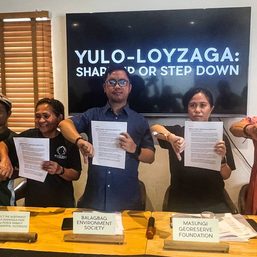



![[OPINION] Grading Marcos admin’s performance on the climate agenda](https://www.rappler.com/tachyon/2024/06/grading-marcos-performance-climate-agenda-june-25-2025.jpg?resize=257%2C257&crop=441px%2C0px%2C1080px%2C1080px)
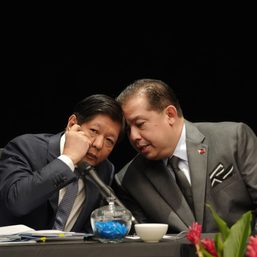













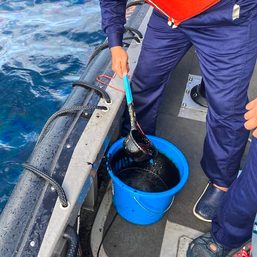




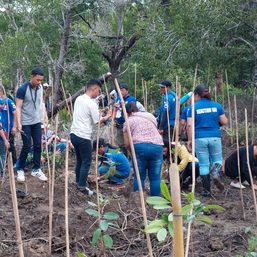



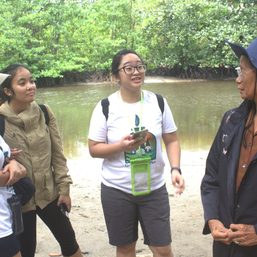
There are no comments yet. Add your comment to start the conversation.